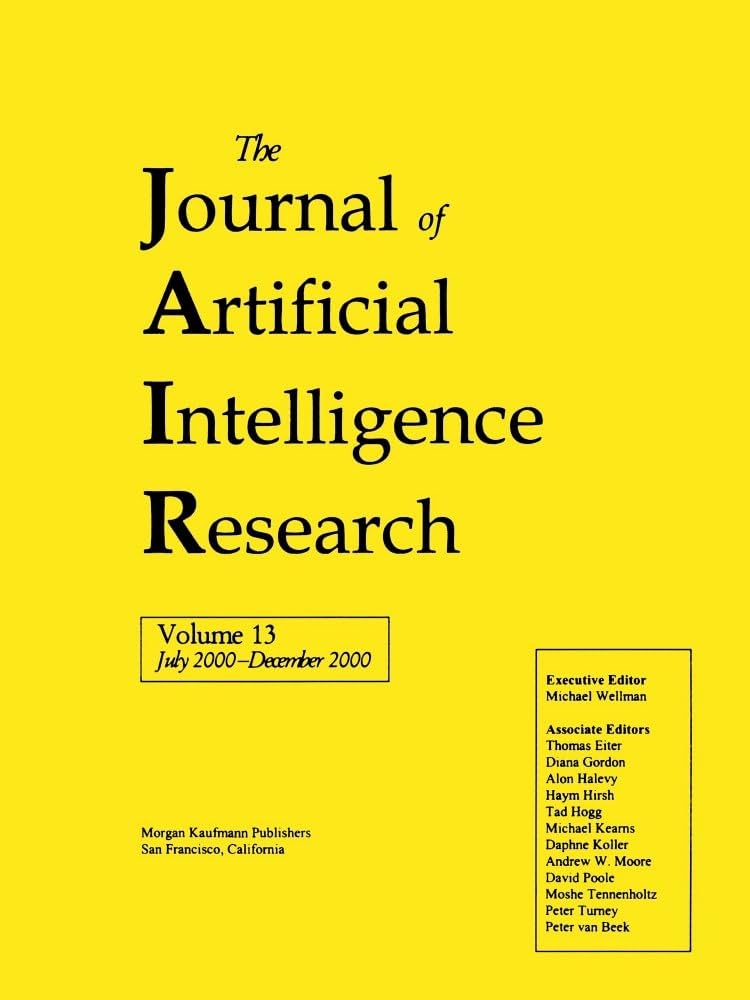买方预选的定价问题
IF 4
3区 计算机科学
Q2 COMPUTER SCIENCE, ARTIFICIAL INTELLIGENCE
引用次数: 4
摘要
我们研究了预先选择参与市场的买方子集(也称为代理人)以优化稳定结果的性能的问题。在社会福利和卖方收入这两个最先进的目标函数下,我们考虑了市场嫉妒自由和代理人嫉妒自由这两个稳定性概念结合而产生的四种情况。在市场嫉妒自由条件下,证明了在两个目标函数下,当ε > 0时,问题不能在n 1−ε (n为购买者数量)范围内逼近;我们还提供了近似算法,其近似比率紧达社会福利和卖方收入的次多项式乘法因子。负面结果尤其适用于那些一心一意的买家。我们还证明,即使对于单个买家,最大化卖方收入也是np困难的,从而结束了前面的开放问题。在agent嫉妒自由条件下,对于这两个目标函数,我们设计了一个多项式时间算法,将涉及任意买家子集的市场的任何稳定结果转换为整个市场的稳定结果,而不影响其性能。这一结果创造了一个有趣的中间局面,即如果买方预选一方面不能提高代理无嫉妒结果的性能,另一方面它可以用作简化给定市场中买方估值函数组合结构的工具。最后,我们考虑了多单位市场的限制情况,其中所有的物品都是相同的类型,并被赋予相同的价格。对于这些市场,我们证明了预选可以在所有四种考虑的场景中提高稳定结果的性能,并设计了相应的近似算法。本文章由计算机程序翻译,如有差异,请以英文原文为准。
Pricing Problems with Buyer Preselection
We investigate the problem of preselecting a subset of buyers (also called agents) participating in a market so as to optimize the performance of stable outcomes. We consider four scenarios arising from the combination of two stability notions, namely market envy-freeness and agent envy-freeness, with the two state-of-the-art objective functions of social welfare and seller’s revenue. When insisting on market envy-freeness, we prove that the problem cannot be approximated within n 1−ε (with n being the number of buyers) for any ε > 0, under both objective functions; we also provide approximation algorithms with an approximation ratio tight up to subpolynomial multiplicative factors for social welfare and the seller’s revenue. The negative result, in particular, holds even for markets with single-minded buyers. We also prove that maximizing the seller’s revenue is NP-hard even for a single buyer, thus closing a previous open question. Under agent envy-freeness and for both objective functions, instead, we design a polynomial time algorithm transforming any stable outcome for a market involving any subset of buyers into a stable outcome for the whole market without worsening its performance. This result creates an interesting middle-ground situation where, if on the one hand buyer preselection cannot improve the performance of agent envy-free outcomes, on the other one it can be used as a tool for simplifying the combinatorial structure of the buyers’ valuation functions in a given market. Finally, we consider the restricted case of multi-unit markets, where all items are of the same type and are assigned the same price. For these markets, we show that preselection may improve the performance of stable outcomes in all of the four considered scenarios, and design corresponding approximation algorithms.
求助全文
通过发布文献求助,成功后即可免费获取论文全文。
去求助
来源期刊

Journal of Artificial Intelligence Research
工程技术-计算机:人工智能
CiteScore
9.60
自引率
4.00%
发文量
98
审稿时长
4 months
期刊介绍:
JAIR(ISSN 1076 - 9757) covers all areas of artificial intelligence (AI), publishing refereed research articles, survey articles, and technical notes. Established in 1993 as one of the first electronic scientific journals, JAIR is indexed by INSPEC, Science Citation Index, and MathSciNet. JAIR reviews papers within approximately three months of submission and publishes accepted articles on the internet immediately upon receiving the final versions. JAIR articles are published for free distribution on the internet by the AI Access Foundation, and for purchase in bound volumes by AAAI Press.
 求助内容:
求助内容: 应助结果提醒方式:
应助结果提醒方式:


